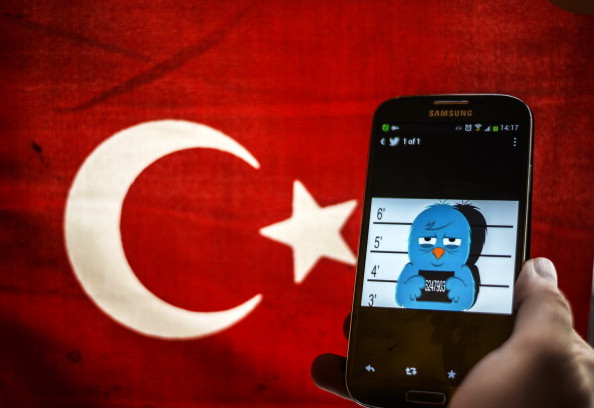Charlie Hebdo: Turkey's crackdown on freedom of expression undermines MetroPoll results

A recent survey by Ankara-based MetroPOLL revealed that some 42% of Turkish people believe Muslims were the real victims of the attack on satirical magazine Charlie Hebdo, in which ten journalists and two policemen were killed by Islamist gunmen.
Another 20% of Turks said they support the killing of the Hebdo staff for making fun of the prophet Mohammed.
The survey was based on face-to-face interviews with 2,759 people between 17 and 20 January, rather than one taken with a greater degree of anonymity.
Turkey has a reputation for trying to curb freedom of expression. It also a poor human rights record. People are coerced into thinking the same way; in may cases they may fear backlash if they oppose the views of the country's government and its ruling ideology.
Freedom of expression and censorship in Turkey
Censorship is widespread in Turkey, which ranked 152 in the 2014 World Press Freedom Index, having dropped 20 positions from the 132th place it gained in the 2010 index.
The Turkish government publicly showed its disapproval after the Charlie Hebdo cartoonists who survived the terror attack published a "survivor issue" featuring the Prophet Muhammad on the cover.
The move sparked turmoil in several Muslim countries, including Turkey, where a court in the southeastern province of Diyarbakir banned websites from publishing the cover of the latest Hebdo edition, while Turkey's pro-secular newspaper, Cumhuriyet, is being prosecuted after it published four pages of cartoons and articles in support of Hebdo - even though editors said they left out the cartoons which Muslims may find offensive.
The same court also threatened to ban Facebook entirely if the social network doesn't remove pages it claims insult the prophet Mohammed.
Last September, the country's President Recep Erdogan implemented restrictions governing the content of online material.
The new law, originally approved by the then Turkish president Abdullah Gul in 2013, tightens the government's grip on the internet and gives the government the authority to order web hosts to keep records of web activity for up to two years. It also allows Turkey's telecommunications authority (TIB) to block websites without first obtaining a court order.
The law was critcised as a way of preventing dissidents and citizen journalists from sharing video footage or other information regarding any social or political activity, and sparked street protests and various anti-censorship campaigns.
Persecution of activists, journalists and demonstrators
Turkey's recent history is dotted with examples of persecution and denial of basic human rights such as freedom of expression and freedom of assembly, both guaranteed by the International Covenant on Civil and Political Rights, of which Turkey is signatory.
The case of human rights advocate Eren Keskin is an example of how the Turkish government persecutes activists and critics of the government and prosecutes them on terrorism charges.
Keskin, head of the Istanbul branch of the Human Rights Association (IHD) and one of the founders of the Legal Aid Project for sexually tortured women, has been subjected to dozens of trials during one of which she was charged under Article 8 of the Anti-Terror Law with having disseminated "separatist propaganda".
In 2012, two students who staged a protest in 2010 to demand free education were sentenced to eight years and five months in prison after being charged with "membership in a terrorist organisation".
The same year, the Organisation for Security and Cooperation in Europe (OSCE) released a detailed study claiming that nearly 100 journalists were imprisoned in Turkey.
In May 2013 thousands of Turkish gathered to Instambul's Gezi park to peacefully protest against a urban development plan that would destroy the park to build a shopping centre. However, the protest soon shifted to other issues including freedom of expression and the government's encroachment of secularism values.
Police intervened to disperse the demonstrators by pepper spraying them and burning their tents, sparking outrage with several NGOs condemning the unnecessary violence adopted by police forces.
It is estimated that at least 11 people were killed while more than 8,000 injured and over 3,000 were arrested.
Turkish leaders have been long accused of curbing freedom of expression and trying to replace secularism values with Islamist ones. Thus, it should not be surprising that a poll conducted face-to-face with people who might fear persecution, might not correspond to what Turkish people really think, but are afraid to say.
© Copyright IBTimes 2025. All rights reserved.






















